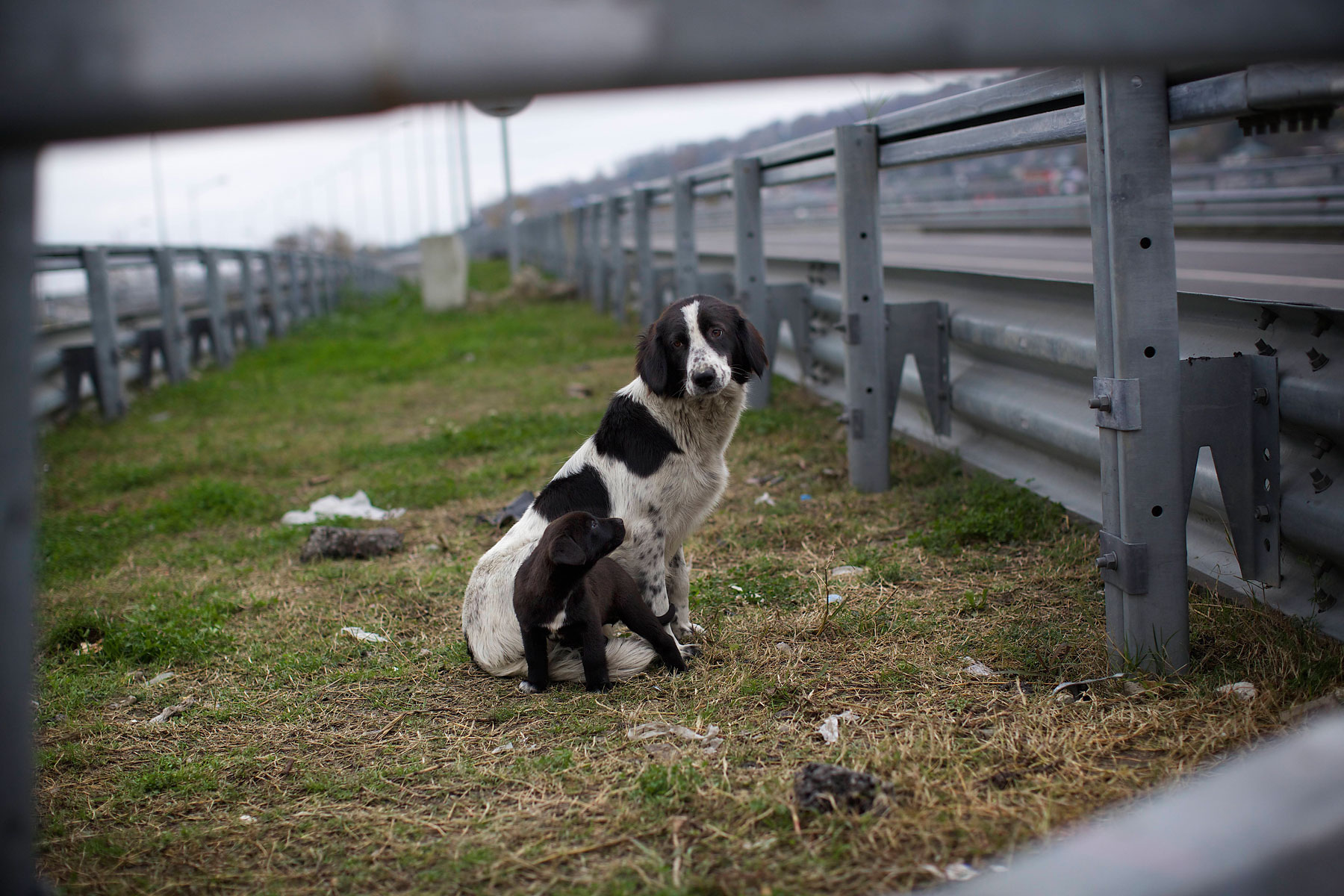
Correction appended: Feb. 4, 2014, 11:50 p.m. E.T.
Kelly O’Meara, director of companion animals and engagement for Humane Society International, was “very surprised” when she heard that Sochi officials planned to kill stray dogs roaming around the Olympic host region throughout the Games. Just last April, organizers scrapped that idea, and said they would build a shelter for the animals. Now, city officials have hired a private company to do the dirty work — its owner told ABC News that the dogs posed a public-safety and health risk and that they were “biological trash.”
“They’ve very publicly gone back on their word,” O’Meara says.
But what else, at this point, can Sochi do? To be fair, organizers face a predicament. They’ve spent more than $50 billion on the Olympics, the highest tab ever for the event (although well-publicized allegations of corruption could have driven up the cost). For that price, they’re counting on a gleaming Games, as the world turns its attention to Russia. Stray dogs don’t help the scenery.
(MORE: Sochi’s Stray Dogs Are ‘Biological Trash,’ Says the Guy in Charge of Culling Them)
So is there humane way to clear the area? “When you’re talking about the removal of a dog population,” says O’Meara, “there is no solution that’s an overnight solution.” O’Meara says that last summer, Humane Society International offered to help Olympic organizers set up a mass-vaccination-and-sterilization program. “You’re already identifying, naturally, through that program, where the problematic dogs are,” says O’Meara. “What are the most aggressive dogs in the population? Those dogs will not make it back onto the street. Because they are a public-health risk, as part of any natural program, if you come across a very aggressive dog or a very sick dog, those dogs are humanely euthanized, and no longer pose a public threat.” Plus, sterilization could have helped control the dog population over the past few months.
Olympic officials did not respond to Humane Society International’s offer.
At the very least, Sochi could have found room in the $50 billion budget to hire a more humane help. “If you’re concerned about the public safety of dogs and their interaction with people,” says O’Meara, “animal-control officers can be in place that are constantly monitoring the dog population and its interaction with the public. Just as police are on top of a potential criminal, they are on top of the aggressive dogs. Dogs would figure out quickly that they’re not welcome where all the people are. And they will run in different directions.”
(MORE: Did You Know It Doesn’t Actually Snow in Subtropical Sochi?)
The dogs could be placed in temporary shelters during the Games — though these mass shelters can also be problematic. “We discourage that, too, simply because of the fact that it’s an inhumane process normally to catch that number of dogs,” says O’Meara. “You put them in a confined environment. Plus, the likelihood of those dogs making it back onto the street, in the condition they are put in, is very slim.”
Still, this option beats killing the dogs. Though any mass removal, O’Meara says, comes with consequences. “Dogs replace other dogs quite quickly in a space that is void,” she says, “because there’s food supply, and that’s a good territory to have. And it’s no longer being used.” These dogs survive a cull because they don’t show themselves in public. They may prove more of a nuisance than the dogs just rounded up. “They are less integrated into the community,” says O’Meara. “They are less friendly, and harder to catch. The friendliest dogs are easiest to catch.”
As Sochi’s strays may soon find out.
An earlier version of this article misspelled the given name of Humane Society International’s director. She is Kelly O’Meara, not Kelley.
More Must-Reads from TIME
- Why Biden Dropped Out
- Ukraine’s Plan to Survive Trump
- The Rise of a New Kind of Parenting Guru
- The Chaos and Commotion of the RNC in Photos
- Why We All Have a Stake in Twisters’ Success
- 8 Eating Habits That Actually Improve Your Sleep
- Welcome to the Noah Lyles Olympics
- Get Our Paris Olympics Newsletter in Your Inbox
Contact us at letters@time.com